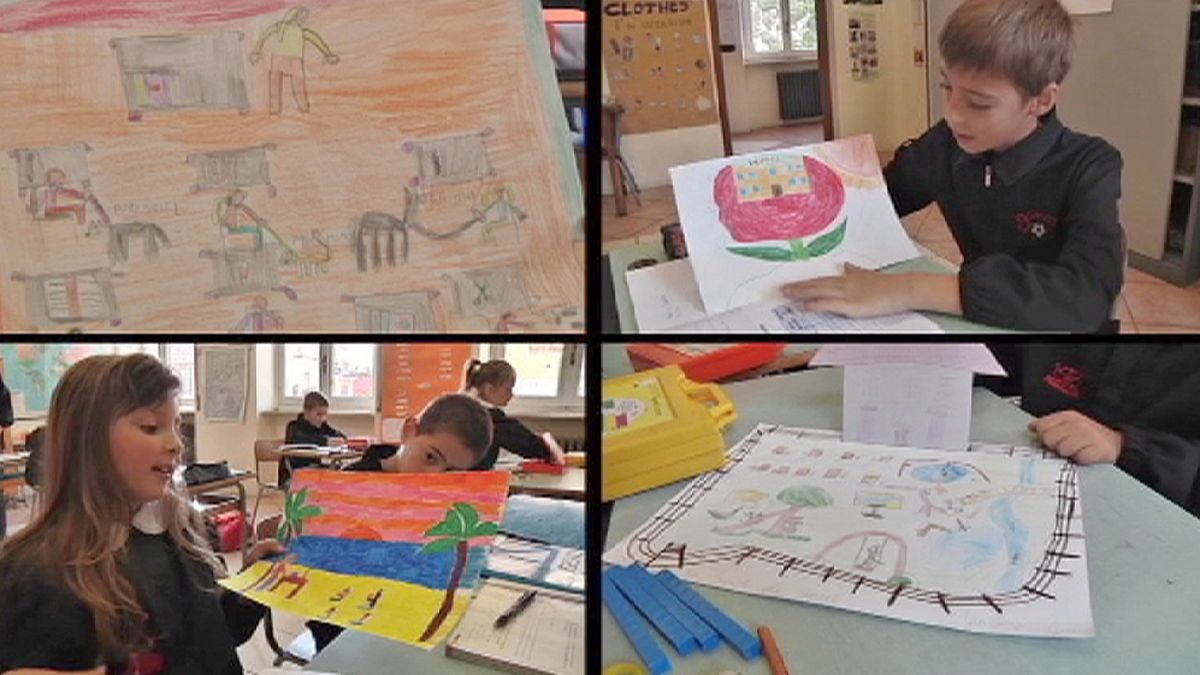If we’re lucky, we have memories of our school days and our teachers. Around the world people are working to ensure that everyone has these memories. Learning World talked to a selection of people around the world to see what they thought about the schools of the future.
Education Quiz
Love them or loathe them, teachers are milestones in our lives. Zakaria from Tanzania said “A good teacher teaches well in the class and loves all the students.”
Irina Bokova, the Director-General of UNESCO, said: “I remember my very first teacher, a young woman. And then I had an exellent teacher of history. Because of him I wanted to become an archeologist at that time.”
Carol Bellamy, the Director of the Peace Corps, said: “I went to law school to save the world, and I got to law school and discovered that I loved business. But that’s what education is about. Education opens your eyes and all of a sudden you discover things that you didn’t realize before you discovered whatever it was.”
Chrysa Tsilis, a schoolgirl from Greece, said: “The truth is I cannot see the school of the future because the crisis has made us blind.”
A global fund for education
The Millennium Development Goals of 2015 are looming large on the horizon and it looks increasingly unlikely that they will be met. It is still estimated that 70 million children remain out of school.
Learning World met Gordon Brown, the former British Primer Minister at Geneva during the UN Economic and Social Council 2011.
Aurora Velez from Learning World asked him: “According to your report there is an emergency in education in the poorest countries. What is needed to achieve the Millenium Goals?”
Brown replied: “We made a promise in 2000. The promise was that every child would be in school. If by 2015 we don’t just have the 67 million that are not in school at the moment but perhaps have an even higher figure of out-of-school children because of population changes and cuts in educational budgets, then that would be a betrayal of every promise that we’ve made. So what do you do about it? I think first of all you’ve got to be clear that we need to train more teachers. We’re probably a million short of the teaching staff we need around the world. I think we need public and private partnerships to build the schools, the classrooms that we need.
“I think we are in a world where we have put a man on the Moon; we’ve been able to understand the human gene, we’re looking for cures for some of the most awful diseases and finding them. So there is no physical, technological, scientific barrier to getting a child into a classroom. It can be done.”
Aurora Velez from Learning World: “Sub-Saharan Africa is facing the biggest regional challenge with 10 million children forced to drop out of primary school every year. Concerning access to education there’s a gap beween the richest and the poorest, which is getting wider and wider. What’s gone wrong?”
Gordon Brown, Former British Prime Minister: “We spend so little on the education of a sub-Saharian African child – on average $400 for all their education – compared with what we spend for an American child – $100,000 for their education. This is such an unequal and unfair distribution of opportunities that really the world has a duty to come together and say look, let’s have a global fund for education, let’s make sure that those countries with plans to give educational opportunities to all, can meet these targets. After all the Dakar, 1990 educational promise was that there would be no financial barrier to realizing the educational goals. That if there was a financial problem we, the richest communities of the world, would make sure that education is available to the poorest.”
For more information see http://lemonde-educ.blog.lemonde.fr/
Making the grade, Tanzania
Uwezo is a citizen-led movement working in Tanzania, India, Pakistan, Uganda and Kenya. It recruits volunteers to assess how children are doing in school and to what extent parents are getting involved, and it gives parents feedback on how to help their children. The focus is on the three Rs. Volunteers are trained and they practice giving assessments before they go to visit their friends and neighbours.
Rather than attempting to improve education by changing government policy, Uwezo aims to involve parents in their children’s education. It also encourages community action.
Uwezo believes that teachers should find their own solutions in the classroom, rather than rely on government reforms.
For more information see http://www.uwezo.net/
